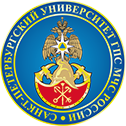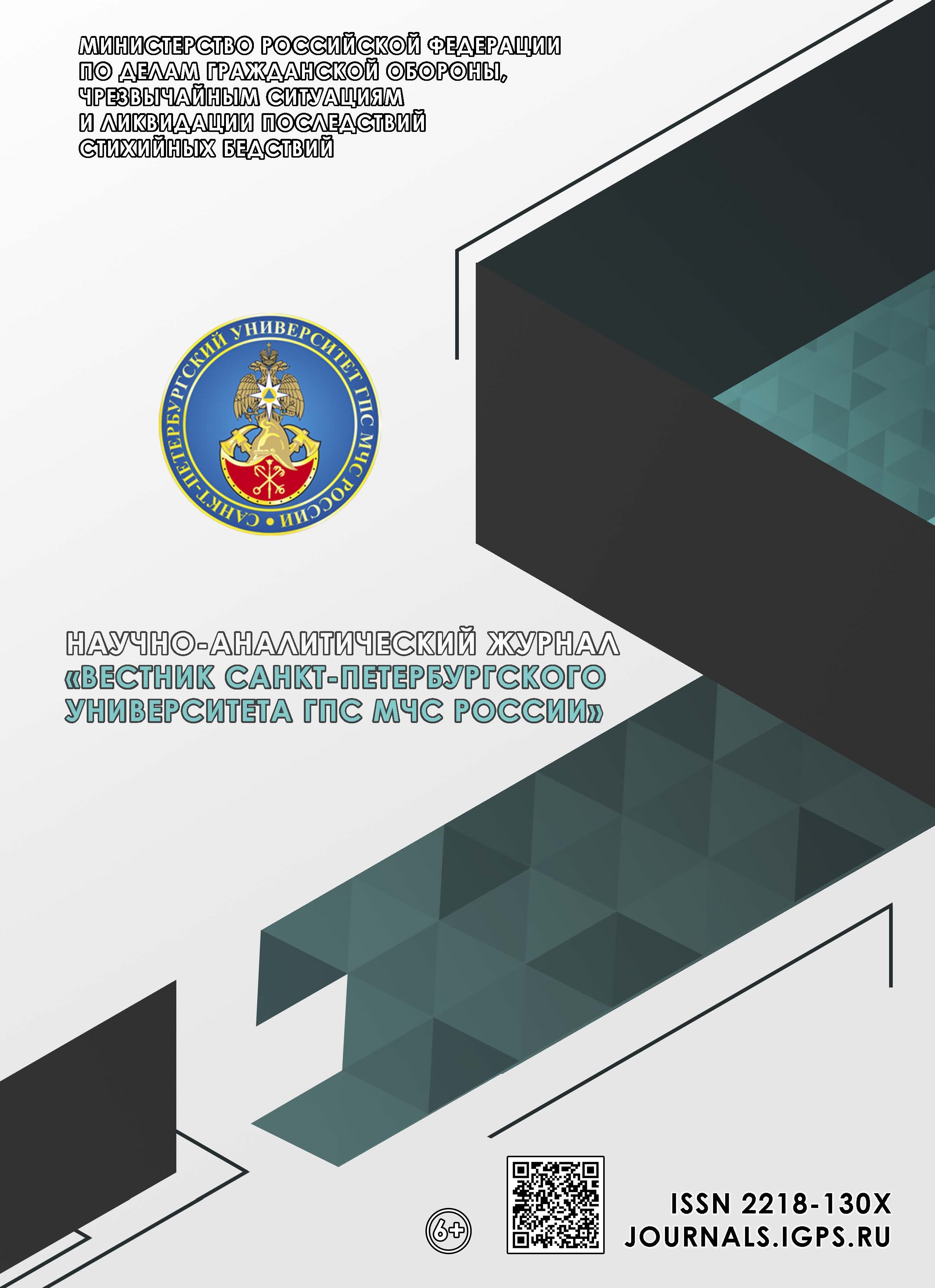St. Petersburg, Russian Federation
from 01.01.2013 until now
Russian Federation
UDC 614.849
UDC 004.021
The relevance of the study is due to the need to improve the validity and effectiveness of management decisions when responding to forest fire threats in conditions of high uncertainty and dynamic development of fire hazard situations. Existing approaches, based mainly on expert methods, do not always allow for prompt and accurate consideration of the entire range of factors influencing the choice of management decisions, which requires the implementation of intelligent decision support systems. The work uses a hybrid approach combining deep neural tree and fuzzy logic methods, implemented in the form of algorithms for intelligent decision support at the strategic and tactical levels of management. Machine learning methods are used to predict key parameters of forest fires (area, duration of liquidation, distance to settlements, number of forces and means involved), and the fuzzy logic apparatus is used to generate sound management recommendations based on forecast data. The main results of the study are the development and implementation of algorithms that automate the processing of initial data, forecast target indicators and determine recommended management decisions for the Commission for the Prevention and Elimination of Emergencies and Fire Safety. Examples of the implementation of algorithms are given, high values of the quality metrics of machine learning models and the performance of the proposed solutions on test data are demonstrated. The scientific novelty of the work lies in the integration of deep neural tree methods with Takegi-Sugeno fuzzy inference into a single system designed to support decision makers in responding to forest fire threats. Flowcharts of algorithms are proposed that allow formalizing the decision-making process and increasing their interpretability. The practical significance of the results lies in the possibility of using the proposed algorithms as part of intelligent decision support systems for government agencies in emergency situations to improve the validity, timeliness and quality of management decisions, as well as optimize time and human resources in responding to forest fire threats.
intelligent decision support, algorithm, forest fires, machine learning, fuzzy logic
1. Clinical Decision Support Systems for Triage in the Emergency Department using Intelligent Systems: a Review / M. Fernandes [et al.] // Artificial intelligence in medicine. 2020. Vol. 102. P. 101762. DOI:https://doi.org/10.1016/j.artmed.2019.101762.
2. Bistron M., Piotrowski Z. Artificial intelligence applications in military systems and their influence on sense of security of citizens // Electronics. 2021. Vol. 10. № 7. P. 871. DOI:https://doi.org/10.3390/electronics10070871.
3. Application of computational intelligence technologies in emergency management: a literature review / N. Chen [et al.] // Artificial Intelligence Review. 2019. Vol. 52. P. 2131–2168. DOI:https://doi.org/10.1007/s10462-017-9589-8.
4. Applications of artificial intelligence and machine learning in disasters and public health emergencies / S. Lu [et al.] // Disaster medicine and public health preparedness. 2022. Vol. 16. № 4. P. 1674–1681. DOI:https://doi.org/10.1017/dmp.2021.125.
5. Freeman S. Artificial intelligence for emergency management // Artificial Intelligence and Machine Learning for Multi-Domain Operations Applications II. 2020. Vol. 11413. P. 393–400. DOI:https://doi.org/10.1117/12.2561636.
6. Medvedev D.V. Model' prognozirovaniya lesnyh pozharov na osnove nejro-nechetkoj sistemy ANFIS // Nauch.-analit. zhurn. «Vestnik S.-Peterb. un-ta GPS MChS Rossii». 2023. № 4. S. 185–198. DOI:https://doi.org/10.61260/2218-130X-2024-2023-4-185-198.
7. Obrabotka informacii dlya sistemy podderzhki prinyatiya reshenij pri protivopozharnom monitoringe lesnyh massivov / A.A. Sorokin [i dr.] // Izvestiya Saratovskogo universiteta. Novaya seriya. Seriya: Matematika. Mekhanika. Informatika. 2023. T. 23, № 1. S. 126–138. DOI:https://doi.org/10.18500/1816-9791-2023-23-1-126-138.
8. Medvedev D.V., Matveev A.V., Smirnov A.S. Primenenie modeli logisticheskoj regressii pri prinyatii reshenij po opredeleniyu kolichestva privlekaemyh sil na likvidaciyu lesnyh pozharov // Pozharovzryvobezopasnost'. 2024. T. 33. № 4. S. 84–96. DOI:https://doi.org/10.22227/0869-7493.2024.33.04.84-96.
9. Dorodnyh N.O., Nikolajchuk O.A., Yurin A.Yu. Sozdanie prototipov precedentyh baz znanij na osnove transformacii tablic reshenij dlya prognozirovaniya riska lesnyh pozharov // KII-2022: sb. trudov XX Nac. konf. po iskusstvennomu intellektu s mezhdunar. uchastiem. M.: Nacional'nyj issledovatel'skij universitet «MEI», 2022. S. 141–151.
10. Matveev A.V., Bogdanova E.M. Klassifikaciya metodov prognozirovaniya chrezvychajnyh situacij // Nacional'naya bezopasnost' i strategicheskoe planirovanie. 2018. № 4 (24). S. 61–70.
11. Yang Y., Morillo I.G., Hospedales T.M. Deep neural decision trees // arXiv preprint arXiv: 1806.06988. 2018. DOI:https://doi.org/10.48550/arXiv.1806.06988.
12. Deep neural decision forests / P. Kontschieder [et al.] // Proceedings of the IEEE international conference on computer vision. 2015. P. 1467–1475.
13. A knowledge-driven fuzzy logic framework for supporting decision-making entities / D. Muñoz-Valero [et al.] // Applied Soft Computing. 2025. P. 113415. DOI:https://doi.org/10.1016/j.asoc.2025.113415.
14. Maksimov A. V. Metody podderzhki prinyatiya reshenij v operativnom upravlenii pri chrezvychajnyh situaciyah: obzor issledovanij // Nacional'naya bezopasnost' i strategicheskoe planirovanie. 2023. № 2 (42). S. 91–102. DOI:https://doi.org/10.37468/2307-1400-2023-2-91-102.
15. Conceptual Framework of an Intelligent Decision Support System for Smart City Disaster Management / D. Jung [et al.] // Applied Sciences. 2020. Vol. 10. № 2. P. 666. DOI:https://doi.org/10.3390/app10020666.
16. Bot K., Borges J.G. A Systematic Review of Applications of Machine Learning Techniques for Wildfire Management Decision Support // Inventions. 2022. Vol. 7. № 1. P. 15. DOI:https://doi.org/10.3390/inventions7010015.
17. Abid F. A Survey of Machine Learning Algorithms Based Forest Fires Prediction and Detection Systems // Fire technology. 2021. Vol. 57. № 2. P. 559–590. DOI:https://doi.org/10.1007/s10694-020-01056-z.
18. A Brief Review of Machine Learning Algorithms in Forest Fires Science / R. Alkhatib [et al.] // Applied Sciences. 2023. Vol. 13. № 14. P. 8275. DOI:https://doi.org/10.3390/app13148275.







